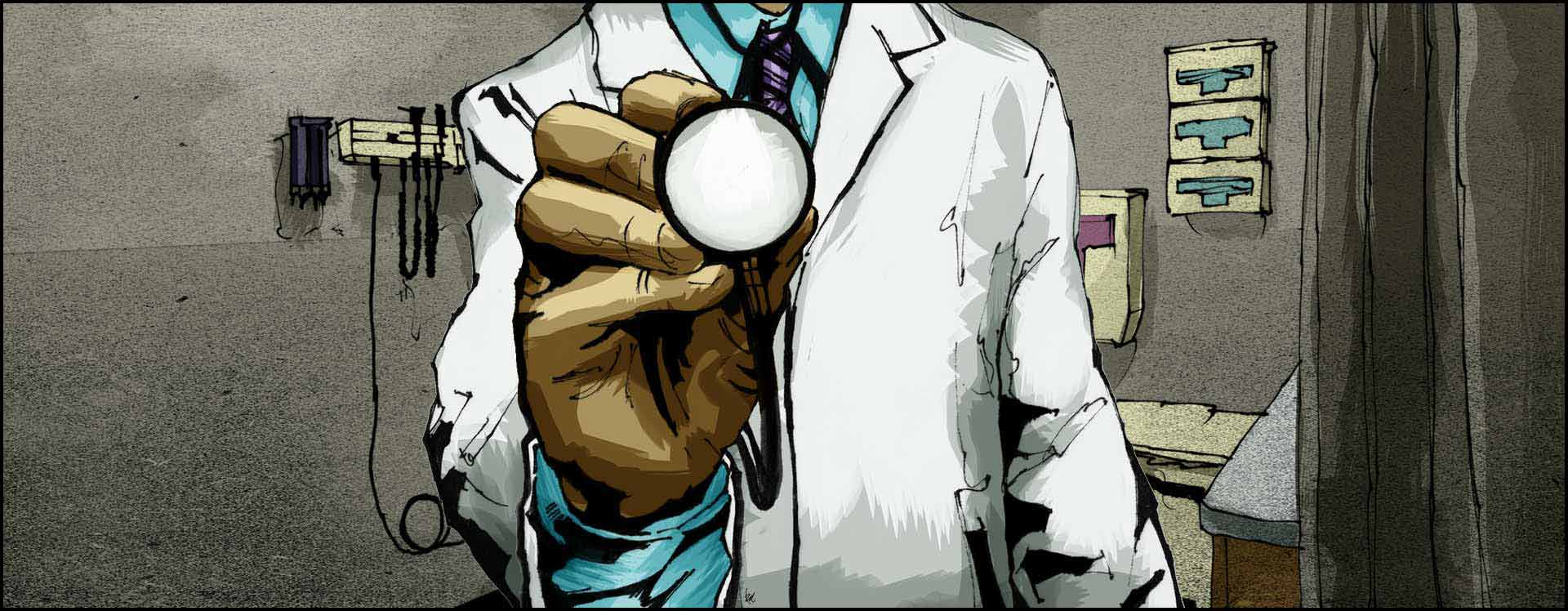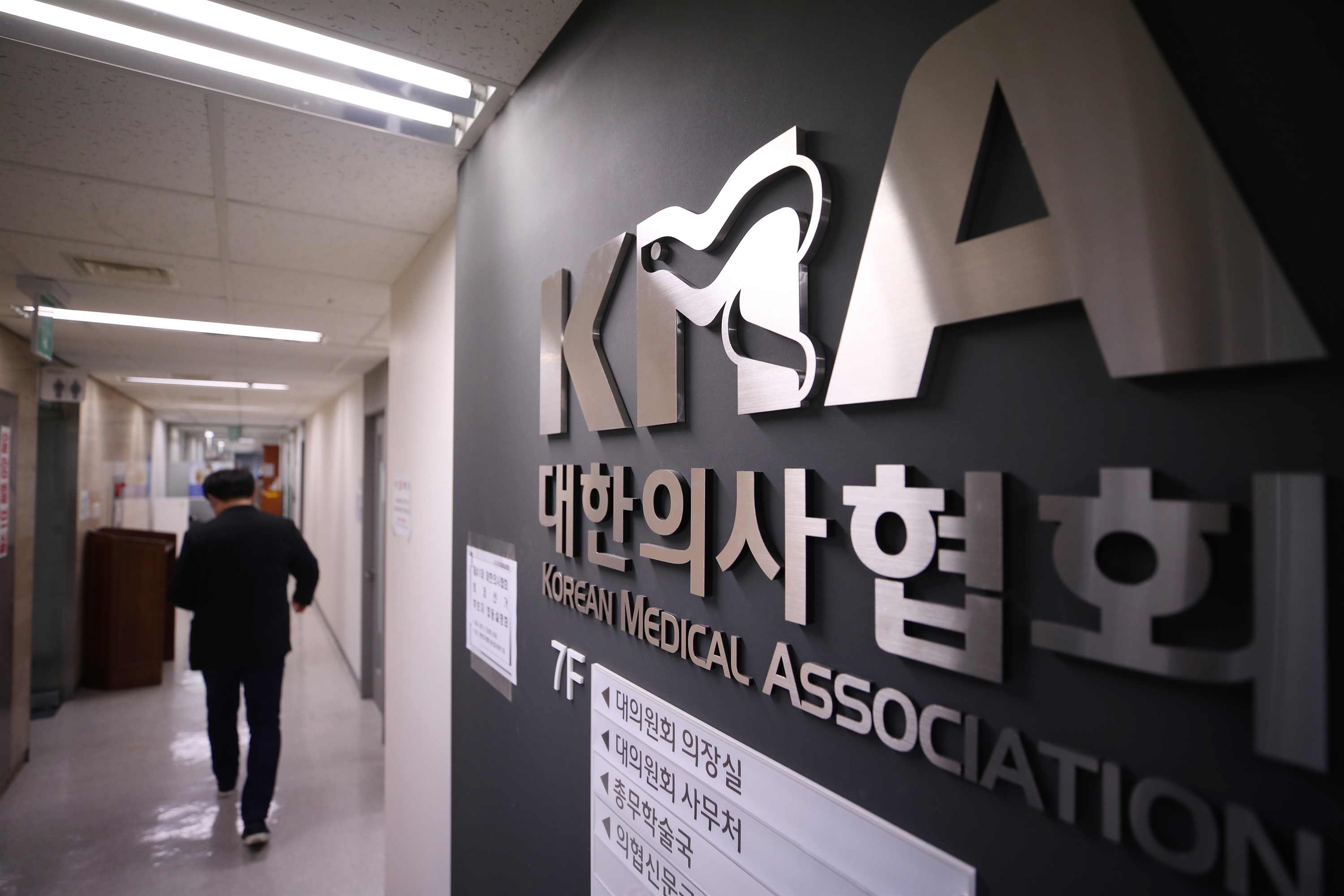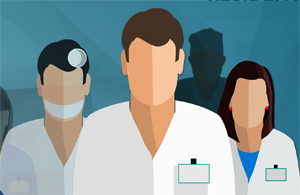
Amending the Law of a Medical License to Eliminate Partiality
On Feb. 26, the amendment to the medical law failed to cross the threshold of the National Assembly's Legislation and Judiciary Committee[1] due to the dissent of opposition parties. The government and the medical community have engaged in the dispute over the medical law amendment under the most stringent situation of the COVID-19 vaccination. The sexual assaults of doctors against anesthetized patients have continued to be reported. This sparked calls for revision of the medical law. Reflecting public opinion, the government proposed a revision to the medical law, which would revoke the licenses of convicted physicians who carried prison sentences. After the Health & Welfare Committee of the National Assembly[2] passed the review of the amendment on Feb. 19, the Korean Medical Association (KMA) clarified its intention to go on a general strike threatening to halt cooperation in the COVID-19 vaccination program. The Sogang Herald looks into the revision of the medical law and why the medical community is fiercely opposing the amendment.
Medical Act Revision
Medical law is the basic law that regulates medical personnel, medical institutions, and medical practice. According to Article 1[3], the Act aims to protect and promote the health of people by prescribing necessary details about national health care so that all citizens can receive high-quality medical benefits. Under existing medical law, doctors' license is revoked when they are sentenced to imprisonment or higher[4] for violating the medical law. The term “imprisonment” refers to the sentence in which freedom is deprived but labor is not assigned. The revised bill is to broaden the scope of crimes corresponding to the reason of revoking a license from the crimes only related to the medical law to all the immoral, personal crimes sentenced to imprisonment. In spite of the stricter bills, there was an exception even if they are punished more than imprisonment. In consideration of the special nature of medical work, if medical personnel commit professional negligence resulting in death[5] during medical activities, they shall not be subject to license cancellation. If the amendment is passed, the doctor who was sentenced to imprisonment or higher will be disqualified for the next five years starting from the end of their execution period. Also, if they are sentenced to probation for a sentence of imprisonment or higher[6], they will not be able to treat patients for two years after the end of the grace period.
The Eradication of “Phoenix License” Privilege
The purpose of the proposed amendment to the medical law is to align equity with the national license qualification system of other professionals such as lawyers, accountants, and patent attorneys. When sentenced to imprisonment or to probation for a sentence of imprisonment or higher, other professions’ licenses could be revoked or suspended for a certain period regardless of the type of crime. Unlike other professions, the medical personnel’s eligibility is restricted only when they are disqualified due to drug addicts, mental illness, and lending their licenses or when they are sentenced to imprisonment or higher in violation of medical-related laws. To one’s surprise, their license can be maintained even if a doctor commits violent crimes such as murder, robbery, or rape.
Over the past five years, 2,876 doctors have committed violent crimes, with 686 of them committing sex crimes. However, there are only four cases in which qualifications have been suspended for the crime, and the disciplinary action was only one month long. To illustrate actual cases, the doctors who habitually committed sexual harassment against 13 female patients after dosing sleeping pills and who sexually harassed a female high school student ten times during the spinal correction treatments continue to perform medical activities. In addition, the number of doctors who intentionally default on health insurance premiums is increasing every year. On this account, there was a loss of nearly four trillion won in health insurance finances, and the damage is entirely up to the public. Even if the license was revoked after being sentenced for violations of the medical law, the license was revived, and the doctor was reinstated.
Since medical personnel are in the position to directly affect the lives and health of people, enhanced moral quality should be required for certain. However, it has been pointed out that such a system needs to be improved, as it allows relatively slack grounds for disqualification and violators to reissue licenses. The governing Democratic Party of Korea and the Ministry of Health and Welfare voiced that a high sense of ethics should be required of doctors in terms of the lives and safety of the people. Therefore, the law should be revised to protect not only the people but also a large number of medical personnel from being disgraced by very few serious criminals.

Medical Community in Backlash
The Korean Medical Association (KMA) is strongly opposed to the revision of the medical law, calling it unjust law “killing doctors”. After perceiving public antipathy, the KMA slightly changed its stance by stating that they agree to revoking the license when medical personnel commit felonies. However, they claimed not to extend the scope to the suspended sentence of imprisonment or higher. Currently, there is already a bill to disqualify medical personnel from imprisonment or higher. Therefore, the amendment would be a double punishment to disqualify them for more than five years. The KMA also claimed that if the license is revoked due to crimes unrelated to the job, it violates the principle of over-regulation. Violation of traffic laws to save emergency patients may result in the cancellation of a medical license just by accident. As a response, the medical community claimed that the revision could make the medical be revoked for unintentional traffic accidents. However, they are normally fined[7]for crimes unrelated to their occupation, contrary to medical community’s claim. Besides, this amendment is neither double regulation nor excessive penalty. Like the other professions, qualification restrictions of doctors were stipulated given the characteristics of medical work taking risks of medical care and surgery. Also, the bill to exclude professional negligence was reflected in the discussion of the National Assembly.
The KMA further argued that it is important to recognize the clear differences in roles and expertises that correspond to each professional position. While lawyers are responsible for advocating human rights and implementing justice, doctors are dedicated to protecting and promoting public health. For this reason, they pointed out that the misconduct of lawyers and legal experts, who prioritize the implementation of justice, and that of doctors, only related to medical care, cannot be considered the same. In addition, the KMA asserted how unreasonable the treatment is for the doctors fighting for the COVID-19 on the front lines. The People Power Party[8] also argues that it is inappropriate to push ahead with amendments at the time of the ongoing battle with the COVID-19, at which the cooperation of doctors is more urgent than ever. The party was also concerned about the abuse of the bill, arguing that the wide scope of application will lead to other victims. As there are many cases in which medical personnel are falsely accused of sexual harassment, it is feared for the law to be abused in humiliating the doctors.
The Need for Alternative Measures
Owing to this unabated disagreement, some are calling for alternative measures such as introducing a new system or establishing an institution. The most debated topic is the empowerment of self-disciplinary measures[9]. The key to the system is to allow doctors to have a self-purification function and give them practical authority to discipline themselves autonomously. The medical community stressed the need for the system, saying it will help improve the quality of medical license management. Critics of the system, however, say there is a loophole in regulating medical personnel who are not affiliated with the doctors’ association, even if the association is granted the right to self-disciplinary action. Another emerging option is the license management organization[10], which includes not only medical personnel but also various interested parties such as patients, governments, and educators. In the UK, there is an organization called The General Medical Council (GMC), whose top decision-making body consists of 12 members with only six doctors.

▲ Public opinion calls for doctors to do their social duty by cooperating with the COVID-19 vaccine program. (© doctor's News)
Challenges Ahead
After the tense confrontation, the review of the bill has been postponed to the next provisional National Assembly. Conflicts with the medical community are expected to reignite, as the ruling party has also announced that it will push for the bill of “mandatory installation of CCTVs in operating rooms", which has not been approved by the National Assembly's Health and Welfare Committee.
The public's antipathy grew as medical workers threatened people’s lives as collateral. The previous general strike had clear justification for opposing the establishment of public medical colleges. In this case, however, the public's anger was aroused when the medical association only insisted on protecting medical personnel, even the ones who committed serious crimes, saying that men are blind in their own causes. There are various precedents of frequent medical law violations. Establishing and improving the institutions to analyze and coordinate the situation in detail will play a very crucial role in the making of future decisions. The government should create an environment where people can use medical services without being anxious with the new amendment preventing violent crimes by medical personnel. Above all, ruling and opposition parties need to persuade doctors in one voice and find a smooth agreement by giving priority to restoring trust between doctors and the government. In addition, the doctors should look back on themselves who enjoy the privilege without any social responsibility for medical practice requiring a higher or similar level of ethics than that of other professionals. Doctors must be familiar with the Hippocratic Oath, which contains the contents of the doctor's ethics. Have doctors who take people's lives as hostages and ask patients to comply with their demands forcefully forgotten the Hippocratic Oath? Doctors should not forget the oath, saying, We will benefit patients, keep the art of medicine reverently, and prevent wrongful acts.
By Min Seung-youn (Int’l & Social Reporter)
piamin03@sogang.ac.kr
[1] 국회 법제사법위원회
[2] 국회 보건복지위원회
[3] 제1조(목적) 이 법은 모든 국민이 수준 높은 의료 혜택을 받을 수 있도록 국민 의료에 필요한 사항을 규정함으로써 국민의 건강을 보호하고 증진하는 데에 목적이 있다.
[4] 금고 이상의 형
[5] 업무상 과실 치사
[6] 금고 이상의 형에 대한 집행유예
[7] 벌금형
[8] 국민의 힘 (정당)
[9] 자율징계권
[10] 면허관리기구
